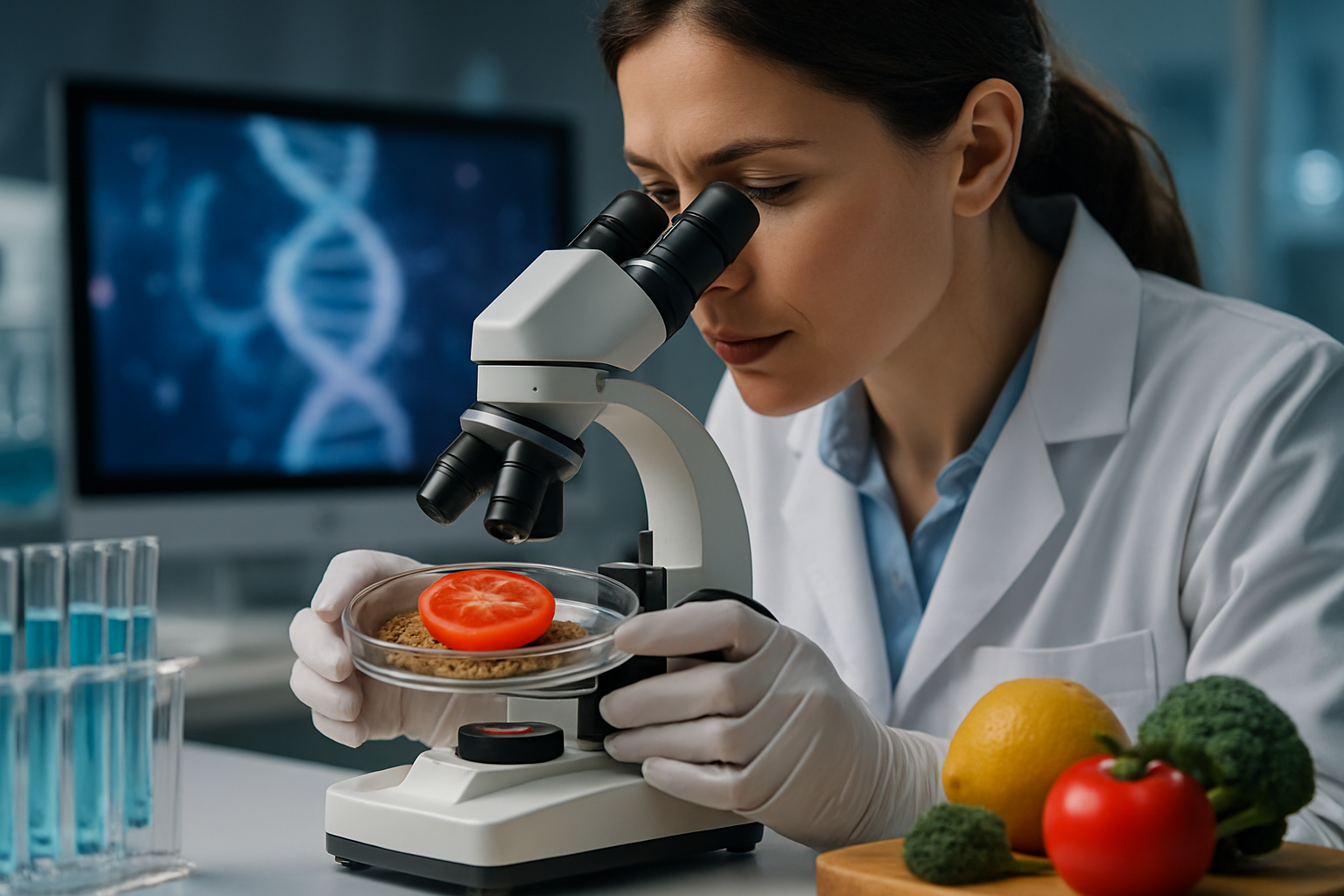Nutrigenomics: Personalizing Nutrition Through DNA
Imagine a world where your diet is perfectly tailored to your genetic makeup, optimizing your health and reducing disease risk. This is the promise of nutrigenomics, a cutting-edge field at the intersection of nutrition and genetics. By examining how our genes interact with the foods we eat, nutrigenomics aims to revolutionize our approach to nutrition and preventive healthcare. This emerging science has the potential to transform our understanding of diet-related diseases and pave the way for truly personalized nutrition strategies. As research in this area continues to advance, we're uncovering fascinating insights into how our genetic variations influence our body's response to nutrients, and how we can leverage this knowledge to improve health outcomes.

Early studies in nutrigenomics focused on identifying single nucleotide polymorphisms (SNPs) – small variations in DNA sequences – that could affect how individuals metabolize nutrients. For example, researchers discovered that people with certain genetic variants might have difficulty processing folate, a crucial B vitamin, potentially increasing their risk of cardiovascular disease and certain birth defects.
As technology advanced and genetic sequencing became more accessible, nutrigenomics research expanded rapidly. Scientists began exploring complex interactions between multiple genes and various dietary components, moving beyond single-nutrient studies to examine how overall dietary patterns interact with our genetic profiles.
Key Principles and Mechanisms
At its core, nutrigenomics is based on the principle that nutrients can act as signaling molecules, influencing gene expression and, consequently, various physiological processes. This concept, known as nutrient-gene interaction, forms the foundation of nutrigenomic research.
Several mechanisms underpin these interactions:
-
Direct regulation of gene expression: Certain nutrients can directly activate or repress genes by binding to specific DNA sequences or interacting with transcription factors.
-
Epigenetic modifications: Nutrients can influence epigenetic marks, such as DNA methylation and histone modifications, which affect gene expression without changing the underlying DNA sequence.
-
Posttranscriptional regulation: Some nutrients impact the stability and translation of mRNA, affecting protein synthesis.
-
Alterations in cellular signaling pathways: Nutrients can modulate various signaling cascades, indirectly influencing gene expression and cellular functions.
Understanding these mechanisms allows researchers to identify potential targets for dietary interventions and develop personalized nutrition strategies based on an individual’s genetic profile.
Applications in Disease Prevention and Management
One of the most promising aspects of nutrigenomics is its potential to revolutionize our approach to disease prevention and management. By identifying genetic variants associated with increased disease risk and understanding how dietary factors interact with these variants, researchers can develop targeted nutritional interventions.
For example, studies have shown that individuals with certain genetic variations in the MTHFR gene may have an increased risk of cardiovascular disease due to impaired folate metabolism. For these individuals, a diet rich in folate or folate supplementation may be particularly beneficial in reducing disease risk.
Similarly, nutrigenomic research has shed light on the genetic factors influencing the development of type 2 diabetes. Some individuals may be more susceptible to the disease due to variations in genes involved in glucose metabolism or insulin sensitivity. By identifying these genetic markers, healthcare providers can recommend personalized dietary interventions, such as limiting carbohydrate intake or increasing consumption of specific nutrients, to help prevent or manage the condition.
Challenges and Ethical Considerations
Despite its potential, nutrigenomics faces several challenges. One major hurdle is the complexity of gene-nutrient interactions. Most dietary responses involve multiple genes and environmental factors, making it difficult to establish clear cause-and-effect relationships.
Another challenge lies in translating research findings into practical dietary recommendations. While we’ve made significant progress in identifying genetic variants associated with nutritional responses, developing evidence-based, personalized dietary guidelines remains a complex task.
Ethical considerations also come into play. As genetic testing becomes more widespread, concerns about privacy, data protection, and potential discrimination based on genetic information have emerged. Additionally, there are questions about the equitable access to nutrigenomic services and the potential for exacerbating health disparities.
The Future of Personalized Nutrition
As technology advances and our understanding of gene-nutrient interactions deepens, the future of nutrigenomics looks promising. We can anticipate several developments in the coming years:
-
More comprehensive genetic testing: As sequencing costs continue to decrease, we’ll likely see more extensive genetic profiling, allowing for a more nuanced understanding of individual nutritional needs.
-
Integration with other ‘omics’ technologies: Combining nutrigenomics with other fields like metabolomics and proteomics will provide a more holistic view of how diet impacts health.
-
AI-driven dietary recommendations: Machine learning algorithms could help process complex genetic and nutritional data to generate highly personalized dietary plans.
-
Precision agriculture: Nutrigenomics principles could be applied to crop breeding, developing foods with optimized nutrient profiles for specific genetic subgroups.
-
Targeted functional foods: The food industry may leverage nutrigenomic insights to develop products tailored to individuals with specific genetic profiles.
Conclusion
Nutrigenomics represents a paradigm shift in our approach to nutrition and health. By unraveling the complex interplay between our genes and the foods we eat, this field promises to usher in an era of truly personalized nutrition. While challenges remain, the potential benefits in disease prevention and health optimization are immense. As research progresses and technology advances, we can look forward to a future where our dietary choices are guided not just by general guidelines, but by a deep understanding of our unique genetic makeup. The journey towards this personalized nutritional future is just beginning, and the possibilities are as exciting as they are vast.






